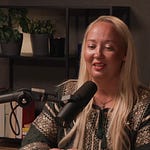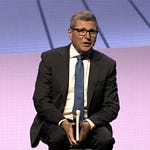There’s an old line, attributed to the American humorist Josh Billings: “It ain’t what you don’t know that gets you into trouble. It’s what you know for sure that just ain’t so.”
That sentiment cuts to the heart of my conversation with Matt Ridley, zoologist, science writer, hereditary peer, and long-time observer of the triumphs and follies of human reason. Ridley’s latest book, Birds, Sex and Beauty, returns to his roots in evolutionary biology, as he argues that the seductive allure of coloured feathers matters more than whether it signals health or strength.
But our conversation focused less on the evolution of plumage, and more on the strange devolution of some science into dogma. The trap is certainty, and the hubris it breeds. Ridley does not denigrate experts; he simply reminds them they are not oracles. They’re human. And humility, not certainty, is the foundation of science.
“A little humility about forecasting the future,” Ridley told me. “There are no experts on the future… on the future of the economy, the future of epidemics, the future of climate. There are no experts on that. And so, for me, that's what science has to do. It has to save the reputation of the real engineers who solve real problems by distancing themselves from the modellers who are little better than snake oil salesmen and astrologers.”
After initial pessimism in his youth about the state of the environment, Ridley became a rational optimist. There are many problems in the world, but when humanity is left free to trade and think, it tends to muddle its way toward improvement. Today, however, optimism is the act of a contrarian.
“We’ve been deluged with the pessimistic side of the world... We’ve been told again and again that disaster is just around the corner. And in fact… there have been spectacular changes in human wellbeing. The most striking example is that half the world’s population was living in extreme poverty — that’s less than $2 a day in today’s money — when I was born, and now that number is something like eight percent.”
The biggest catastrophe on the pessimists’ menu is, of course, climate change. Ridley believes it is a problem but one that has been framed in increasingly apocalyptic tones. It has become an end-times theology. The doom loop is self-reinforcing: politicians want excuses, activists want urgency, the media wants drama, wind and solar carpetbaggers want cash, and an increasingly compromised scientific establishment wants funding.
The problem isn’t that carbon dioxide doesn’t matter. But the nuance is lost in the noise. Ridley, who has spent decades reading the literature, notes that warming is occurring at the lower end of projections. The Intergovernmental Panel on Climate Change itself is cautious about attributing specific weather events to climate change. And yet, everywhere, we hear a recital of the scariest verses from the Book of Revelation.
“The media is far too ready to rush to attribution... And in addition to that, they are leaving out the other side of the story: that carbon dioxide is the food of plants.”
There are echoes here of another crisis: COVID, and the way that modelling, consensus, and censorship replaced debate.
“The scientific community has yet to realise just how much of its reputation it destroyed in the COVID years.”
Masks, transmission, lockdowns, lab leaks — sceptics weren’t allowed to ask the questions, and the expert answers were often wrong. Ridley co-authored a compelling book on the lab-leak hypothesis as the origin of the pandemic and, for that, he was labelled a conspiracy theorist.
This isn’t just about climate. Or COVID. It’s about trust. Because trust is the currency that holds a society together and once spent, it’s hard to earn back.
We are also being offered absurdly expensive solutions. Britain, Ridley notes, now has the highest electricity prices in the developed world. The costs fall hardest on the poor and subsidies flow to the wealthy. Politicians, bureaucrats and activists forecast endless declines in renewables prices as power bills soar and business cashes in:
“We’ve got an enormous crony capitalist industry growing up around the climate scare.”
At the end, we return to his passion, his latest book on birds. Here, nature tells a deeper story: that beauty can emerge for its own sake, and that poetry can sometimes hold more wisdom than prose.
At Powerlines, we try to find people who still value reason over rhetoric. Matt Ridley is one of them. He hasn’t lost faith in science. But he has seen what happens when science becomes a faith.
















Share this post